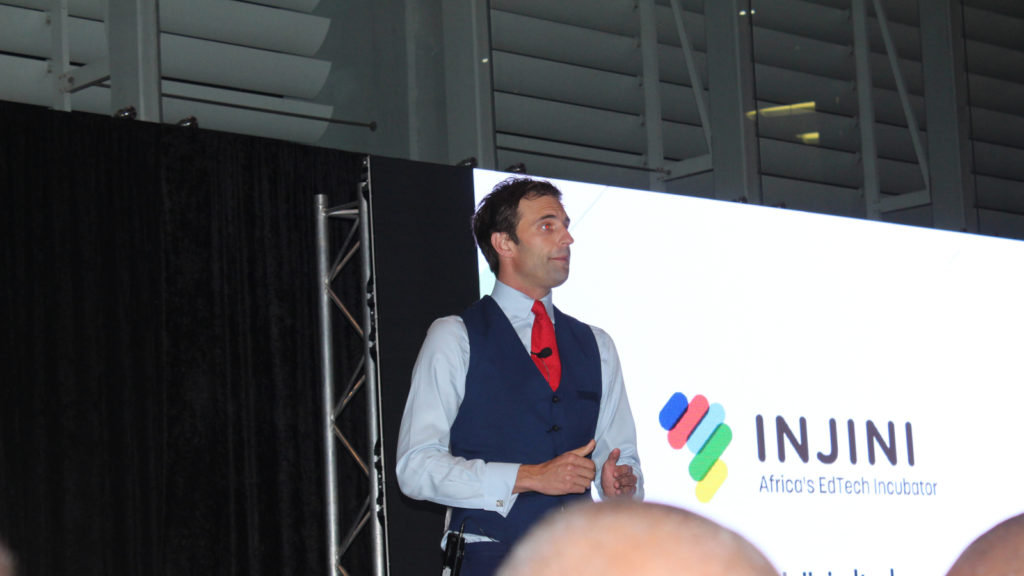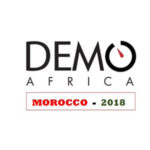Have you ever wondered how much easier travel has become, thanks to the digital innovations shaping our world? Exploring new destinations used to mean…
Nigerian startups dominate lineup in edtech incubator Injini’s second cohort

After receiving over 800 applications from 36 countries across Africa, Cape Town based edtech incubator Injini today (11 July) unveiled the eight startups that will make up its second cohort.
The eight — which hail from Ethiopia, Nigeria, Kenya, South Africa, and Zimbabwe — were selected from a pool of 8oo entries which was then whittled down to 15 finalists.
Speaking on the sidelines of an event hosted at Amazon Web Services’ office in Cape Town — where the announcement was made — Injini founder Jamie Martin (pictured above) said the incubator had been guided in its selection of the cohort by three criteria.
Three of the eight startups in Injini’s second cohort are from Nigeria, while two are South African
“Firstly, what we look for is an innovation that creates access. Is this a different tech that’s going to allow more people across Africa to access great quality education?
“The second thing is we look for a great team. Because as you probably saw a lot of these guys are very early stage, so we as much back the team as we back the innovation,” explained Martin.
He added that the incubator also looked at which of the solutions were “evidence-backed”.
“We always do test them against what’s been tried elsewhere in the world, what approaches in education tend to work. There’s also been a bit of criticism that tech in education is sometimes not evidence-aligned, so we try to be as evidence-backed as we can,” he said.
When asked what stood out for him in the second cohort compared to the first, Martin pointed to the dominance of Nigerian startups.
“One thing that stands out for me is the coming of the Nigerians. We had no Nigerian companies in our first cohort. (In the) second cohort when we held an event in Lagos we got three of eight companies from Nigeria,” he said.
‘Unusual solutions’
He also noted that the second cohort has a “really nice spread across education” in contrast to the first cohort where he said the majority of participants had “classic solutions”.
“I think with something like Langbot in this cohort, or Learning Factory from Zimbabwe these are quite unusual solutions.
“No one was saying let’s use Facebook Messenger bots to teach language. No one was saying let’s put a solar powered boxes with videos on them in rural Zimbabwean schools. I think we’ve seen a little bit more off-the -wall solutions in this cohort,” said Martin.
Here are the eight startups that have been selected:
Bluebic (Nigeria): Nigerian duo Favorite Onwuemene and Chukwuyem Obima have developed a cloud-based school management software for early childhood development (ECD) and K12 schools.
eLimu (Kenya): The startup’s founder Sam Rich has developed a literacy app which provides users with stories as well as games written and illustrated by teachers and artists.
Langbot (Ethiopia): Nathanael Gossaye and Rémi Veyrier are the brains behind this Ethiopian startup which has developed a Facebook messenger chatbot that uses proven gamification and AI to teach languages.
Learning Factory (Zimbabwe) Addi Mavengere, Manners Msongelwa, and Sean Magama are looking to disrupt education with their startup which provides users with multimedia educational resources delivered via a solar powered server.
Lightbulb (South Africa): Allan and Victor Mushabe have come up with a platform that connects students with experts in addition to allowing them to access educational resources online.
Nahana Africa (South Africa): Alexandra Flusk and Koki Kapa’s startup aims to provide science and mathematics teachers with both online training as well as teaching content.
ScholarX (Nigeria): Bola Lawal and Maxwell Ogunfuyi are looking to tackle student funding with their platform which assists prospective university students source tuition.
SlateCube (Nigeria): Chris and Emerald Kwekowe are leveraging tech to address unemployment in Nigeria. The duo’s platform enables users to train, hire and manage top talent.
Injini’s five-month incubation programme launched earlier this week and the incubator will provide each of the eight participants with $50 000 in direct funding, office space and accommodation.
Martin stated that Injini, based on feedback from the first cohort, had made revisions to its incubation programme. These he said included a shorter, more tailored programme as well as a section where founders get to return to their home markets to test their solutions.
When it launched last year, Injini made history as the first ever edtech incubator in Africa. Its first cohort comprised of eight startups: Accelerated, Early Bird, M-Shule, Mtabe, Syafunda, Uthini, Yo’ Books and Zelda.
Read more: Edtech incubator Injini launches, unveils the eight tech startups in its first cohort
Featured image: Injini founder Jamie Martin speaking at an event unveiling the incubator’s second cohort


